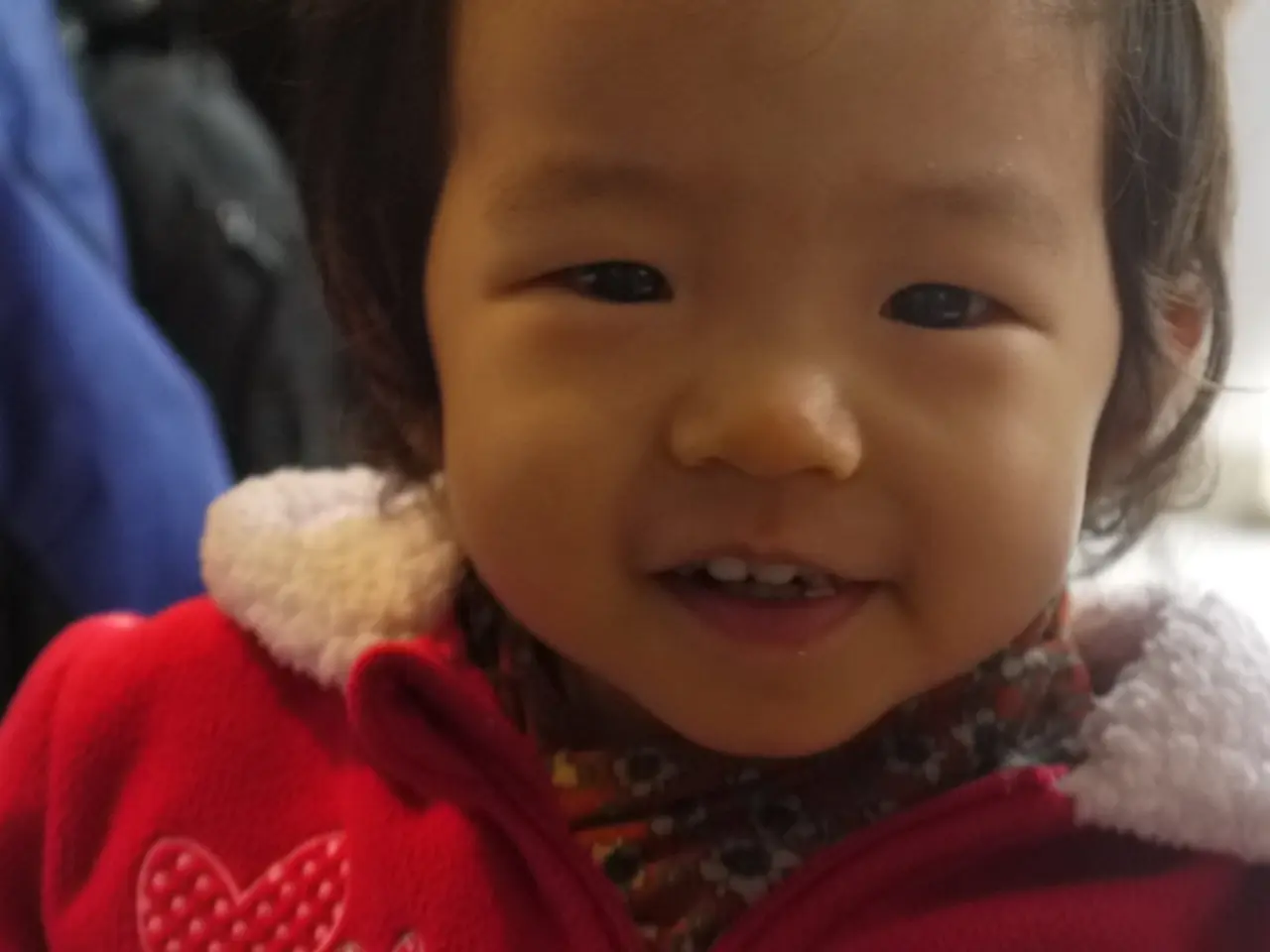Developmental Milestones for Newborns to Three-Month-Old Babies in Nigeria
In the first three months of life, Nigerian babies follow a similar developmental path as infants worldwide. This article will delve into the key physical, cognitive, communication, and motor skill milestones that a baby may achieve during this crucial stage.
Physical milestones
By the end of three months, a baby's average length is around 23 inches (58 cm), and they gain weight steadily. Improved head control allows the baby to hold their head upright for short periods, and they may even attempt to roll over, although many babies achieve rolling later. A baby's sleep pattern starts to establish, with approximately 15.5 hours of sleep within 24 hours, including around 12 hours overnight and 3.5 hours daytime naps spread across three naps.
Cognitive milestones
Babies begin to recognize their main caregivers and show interest in social interactions. They learn new skills such as smiling and responding to stimuli, and early forms of attention and visual tracking of objects are observed.
Communication milestones
Babies start to vocalize, "chatting" to communicate their needs and emotions. They become increasingly responsive to sounds and voices, and they begin to express emotions like crying, smiling, and cooing.
Motor skill milestones
Babies work on both gross motor skills, like head control and rolling, and fine motor skills, such as grasping and holding toys. Fine motor activities, like moving hands during diaper changes or clothes changes, aid development.
While every baby is unique, and individual variation is normal, cultural and environmental factors can influence the pace but not the types of milestones achieved.
Engaging in conversations with the baby, mimicking their sounds, and responding with simple words or phrases helps with language development. Parents can foster communication through talking and singing to their babies. Tummy time can help develop upper body strength and hand-eye coordination in babies.
By three months, babies are becoming more responsive to familiar voices, and improvement in visual focus is observed, including following moving objects with their eyes and focusing on faces. Babies start to recognize familiar faces, which shows that they are starting to form bonds and develop social connections.
Babies begin to develop head control at around 2 to 3 months, which means they can hold their heads steady while being carried upright or supported. Placing rattles or colourful objects within the baby's reach motivates them to reach out and grab.
Parents should celebrate their baby's achievements and enjoy the precious moments during this crucial development stage. If developmental delays or concerns arise, consulting a pediatrician or child development specialist is recommended.
Nutrition plays a vital role in a baby's growth during the first three months. Parents should ensure babies receive the recommended amount of breast milk or formula, plus appropriate complementary foods when they're ready.
In terms of education, parents can assist in their baby's emotional development by engaging in conversations and mimicking sounds for language development. Tummy time can help increase a baby's motor skills, fostering hand-eye coordination.
Safety becomes a concern as playtime increases. It's essential to provide age-appropriate toys and supervise play to prevent injuries.
Along with physical milestones, cognitive development also occurs rapidly. Babies begin to recognize faces, supporting their emotional development and social connections.
During this time, babies' behavior changes as they become more aware and responsive. They are better able to express emotions, such as crying, smiling, and cooing, and respond to stimuli.
By three months, a baby's head control improves, enabling them to hold their head upright for short periods and roll over in some cases. This improvement in motor skills aids in grasping and holding toys for fine motor development.
Parenting during these critical first months is not without challenges. Parents should seek guidance from health-and-wellness professionals, such as pediatricians or child development specialists, if they have concerns about their baby's development.




